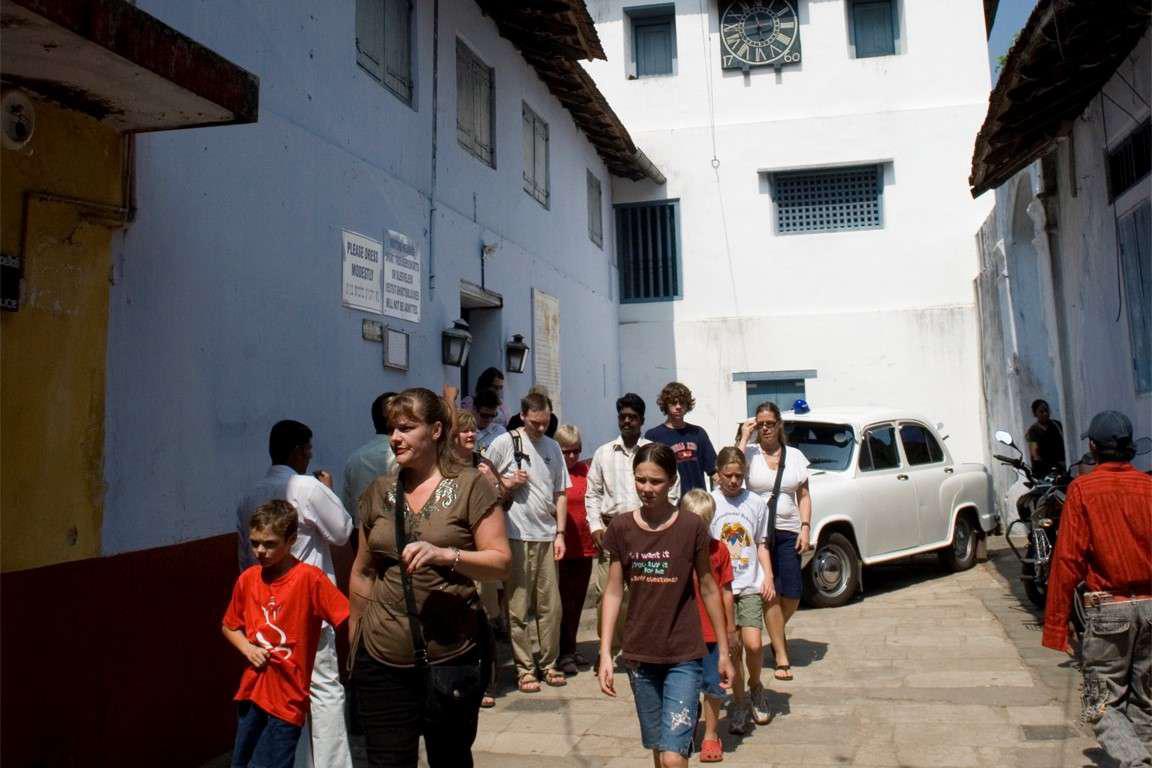
India belongs to a variety of ethnicities and religions. Different religions have historically influenced Indian society on a political, cultural and economic level. Nation's rich history is connected with the religions and origins of Hinduism, Sikhism, Buddhism and Jainism. However, one more religion has existed in India for over eight centuries. Judaism, even after being a foreign religion has been successfully integrated into mainstream Indian society while retaining their unique Jewish identity. Although there is a very little mention of the Jewish community until the 18th century, some historic records show that they resided in Western India and lived here with other religious groups.
Their existence was similarly clear with the arrival of colonial powers like the Europeans and Portuguese. And even today, one old town is preserving the history of India's oldest Jewish settlers. The narrow lanes leading to the Jew Town in the Southern Indian state of Kerala express the rich history that this community had on the Indian subcontinent. Abandoned lanes of the Jew Town lead to a synagogue, which is a Jewish or Samaritan house of worship. The synagogues maintain a place for prayer and sometimes it also has rooms for study, a social hall and offices. The Jew Town is a tiny locality in Mattancherry, a town in Kochi. Some people believe that Mattancherry links to the early Jewish settlers. They believe that the name Mattancherry is derived from Mattan, a Hebrew word for donation and Cherry, a Malayali word for settlement. Similarly, it is believed that the area of Jew Town in Mattancherry was granted to the Paradesi Jews by the king of Kochi when they escaped Portuguese dictatorship in Kodungallur, Kerala and escaped to Kochi.
The Jewish people are also called by the names like Hebrews, Yehudhis and Yehudis. In Judaism, a Jew is any person belonging to the worldwide community that constitutes, through offspring or conversion, a continuation of the ancient Jewish people, who were themselves descendants of the Hebrews of the Bible. The Jews who live in Kochi are the oldest Jewish settlers in India. These Kochi Jews are indigenous migrants flocked around seven churches in and around Kochi. They are broadly divided into 2 groups, the Paradesis means the foreigners and the Malabarees means people of the Malabar coast of India. In the 15th century, the Paradesis landed on the coast of Kerala. The Malabaree Jews in Kerala inhabited here around 2000 years ago and some people believe that Malabarees reached Kerala during the time of King Solomon.
The people of Jew Town are one of the few Jewish people in the world that never faced persecution in their adopted land. However, the Malabaree Jews on their adopted land with early arrival were discriminated by the Paradesi Jews solely for their skin tone and were overlooked by many researchers. The Malabaree Jews were named as Karutha Juthan, translated as black Jews. While the Paradesi Jews who were mostly rich traders were called white Jews. According to the Kerala Public Service Commission, almost 90% of the Kerala Jews were Malabarees and they had seven synagogues, and the Paradesi had only one. By the 1960s, around 2500 Jews from Kochi migrated to Israel in search of wealth in their new holy land, yet the reality is very different. The white Ashkenazi elites of Israel enjoyed prestige in the region and the Jews who showed up from Kochi were broke by the discrimination. They had to work at construction and farm sites to earn daily wages and underwent some critical hardships after the migration. Some other types of Jews in India include Bene Israel and Baghdadi Jews. One more type named Cohens is some of the Jews who chose to stay back in Kochi when most of them immigrated to Israel after India got its independence.
Presently, Cohens are the quickly declining population in Kerala with just two Pardesis in Jew Town and a few Malabarees in other parts of Kochi remaining. Some local Jews are trying to turn traditional Cohen's houses and warehouses into a museum which will preserve these unique traces of history and serve as an educational tool as well. Old books, photographs, utensils, machines from that era are still there in that region. The Jew Town has one of the major tourist attractions in Kochi, the Paradesi Mattancherry Synagogue. While being highly conservative, the Jews also accepted a decent part of Indian traditions in their everyday lives. They spoke the local language - Malayalam, and they similarly removed their footwear before entering the synagogue, which is practised by Indians as a mark of respect to the God, and the Jews also sang prayers in a mix of Malayalam and Hebrew. On holy occasions, they also lit lamps and decorate their synagogue with flowers. The comparatively tolerant and multicultural society of south India was the perfect shelter for Jews who resided in India. And it also illustrated that India largely encourages the followers of any religion to appreciate all faiths and to admire and absorb whatever may be useful in other religions and beliefs.
_____________________________
Reference:
- www.timesofisrael.com
- www.keralatourism.org
- www.wikipedia.org
